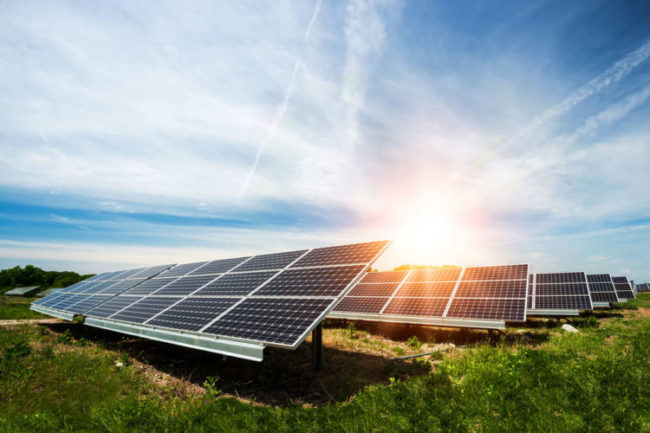

The South Delhi Municipal Corporation (SDMC) has signed a Memorandum of Understanding (MoU) with the Solar Energy Corporation of India (SECI) to co-develop two grid-connected solar PV projects on two sites in Delhi. The total generation capacity of both the projects is 27.5 MW, according to an official.
The work on the two units is likely to begin in the first half of April next year. “The SDMC inked a MoU with the Solar Energy Corporation of India (SECI) for generation of total 27.5 MW power from two separate solar plants, at Ghuman Hera near Najafgarh in Delhi, and a piece of land owned by the SDMC in Faridabad in Haryana,” SDMC revealed in a statement.
The agreement has been signed in continuation with the government of India’s initiative on green energy concept and solar initiative of the SDMC. The MoU was exchanged by SDMC Commissioner P K Goel and Director of SECI Shailender Kumar Mishra.
South Delhi Mayor Narender Chawla revealed that the second site has been identified as Ferozpur Village in Faridabad. “At Ghuman Hera (105 acres) and Ferozpur (9.45 acres) of land is available for setting up the solar plants. After a detailed study, the solar energy plants of estimated capacity 25 MW and 2.5 MW have been planned at Ghuman Hera and Ferozpur. They are expected to be commissioned in 18 months after the start of work,” he said. He further said that the estimated cost for the projects at Ghuman Hera and Ferozpur is Rs 145 crore and Rs 20 crore respectively and the funds for both the projects will be generated through public bonds, and action for this has already been initiated.
[related_post]
SDMC’s Standing Committee Chairperson Shikha Rai said the SDMC will save Rs 22.5 crore per annum from the Ghuman Hera project and earn Rs 1.55 crore from exporting energy generated by Ferozepur plant. She said the commissioning of the two plants is in tune with SDMC’s commitment to minimise consumption of thermal power, conserve natural resources and the environment while earning huge savings.
The Delhi Government in September approved the “Mukhyamantri Solar Power Scheme’, offering residents who install rooftop solar panels a subsidy on their electricity bill for a period of five years from the existing three. The program was created to cater to residential sector consumers in the capital, as the government noticed the big gap in rooftop installations between government/institute buildings (105 MW) and residential buildings (5 MW). And, late last month, following approval from the MNRE, the Delhi government amended its solar scheme to offer payment security to installers in the domestic sector.
1. The mandate for blending Compressed Biogas (CBG) with natural gas has come into effect…
Andhra Pradesh is striving towards greening its energy sector with quite some speed. In a…
With an objective to bolster India’s green energy goals, a Tripartite Agreement has been signed…
The Union MNRE Minister Pralhad Joshi launched the Green Hydrogen Certification Scheme of India (GHCI)…
India’s energy conglomerate Bharat Petroleum Corporation Limited (BPCL) has commissioned a 5MW green hydrogen plant…
In a historical development, the European Space Agency (ESA) has successfully launched its pioneering ‘Biomass’…